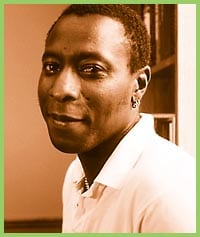We live in a time of posts. Post-civil rights, post-women’s lib and post-gay and lesbian liberation, as each was called in its original arrival on the political scene.
These three movements and moments have totally re-engineered North American society. We live lives that were not and could not be livable without them. And recently these three movements have become the strawmen of neo-cons of all kinds.
Critics have claimed that these movements have created identities that are too rigid, that are largely victim identities. And in even more bizarre terms, the critics have now labeled these victim identities the victimizers.
Yet it is undoubtedly clear that without these movements the fictions of 1950s lifestyles would either still dominate, or we would all crazily hack each other to death, out of a desire for a more full self-expression than that stifling era offered.
It is only by seriously engaging the ethics of these social movements that we might ask: where has the bastard child – sexual liberation – of these three movements disappeared to?
Even if we debate the relative merits of the three liberation movements of the ’60s and after, one thing is certain and one thing remains a constant: those movements provided the opportunity for more than the donning of new identities.
Those three movements placed on the agenda the possibility of thinking differently about life, to muster up courage to risk changing the contexts of our lives.
Take, for example, the collaboration between dancers and choreographers Bill T Jones and Arnie Zane. Their work and especially Jones’s work in the aftermath of Zane’s death, raised questions concerning a range of identities and continually arched towards a renewed humanism. Their works was only possible because of the successes of the new social movements.
What many have failed to see, though, is that these movements were never about identity in the first instance, but about justice.
Justice does not require an identity to be articulated. One does not have to be a woman to understand and reject patriarchy; gay or lesbian to reject heterosexism; or black to reject racism. One doesn’t have to proclaim a sexual identity to call for a plurality of sexual desires and practices. It is the ability to change modes and patterns of thought even when one’s self interests are not at stake that makes liberation possible.
To ask this question where sexual liberation has gone is to approach things from a different place. We don’t need to stake claims to an identity or to even use the language of identity to call for an ethical world.
Abolitionists did not have to be enslaved to understand that the institution of slavery was abhorrent. We do not have to individually and collectively claim a particular identity – say gay or lesbian – to articulate an ethics and make a justifiable call for living life as such.
But because something did happen to sexual liberation, the remaining notion of sexual identity has become a thorny issue. Identities did arise, and they are policed even before practices can be policed. What is we need is a politics that is not invested in claiming an identity to speak its name, but one that calls on all of us who seek justice to act. That is an ethical demand.
The best example in Toronto right now might be policing issues. Many police critics have organized around identities or communities, as we like to call them – black, gay and lesbian, poor etc. But what is crucial and occasionally happens is when those identities/communities come together to act against the police as concerned citizens seeking justice. In those instances, identity is not the basis for the meeting. That coming together is achieved through a particular notion of citizenship and justice.
Sexual liberation had to go missing because sexual liberation does not have an identity. It only has a politics and an ethics. Yes, it is as open as that. And yes, it can be a can of worms – a radical politics of sexuality where having to stake a claim to an identity becomes meaningless.
Sexual liberation disappeared from our vocabulary because it did not produce an easily marketed identity. Sexual liberation calls for a constantly questioning mind and practice. You can read Adrienne Rich as a lesbian poet, but such readings cannot do poetic justice to the philosophical demands of her words.
The disappearance of sexual liberation from our vocabulary has wrought all kinds of pernicious moral policing of sexual identity, not to mention criminal policing. The recent police action against some of Toronto’s gay bars shouldn’t have been debated (as it was) on the terms of whether or not gay men should be allowed to behave differently from others – usually posed as differently from heterosexuals.
Instead, a more fruitful question to ask might be what is wrong with the behaviour, and why is it that criminal laws should regulate adult sexuality?
Such a question does not require the announcement of an identity for an answer.
It is much easier to police identities with moral guides and social dictates, than it is to police principles grounded in ethical concerns and care for others and ourselves. But easier is not better.
The end of sexual identities only arrives just before sexual liberation is achieved. It has not happened yet. But sexual liberation is much like desire: it is always somewhere ahead of us and we are always reaching for it. But whoever said we should give up on the possibility of utopia?

 Why you can trust Xtra
Why you can trust Xtra


